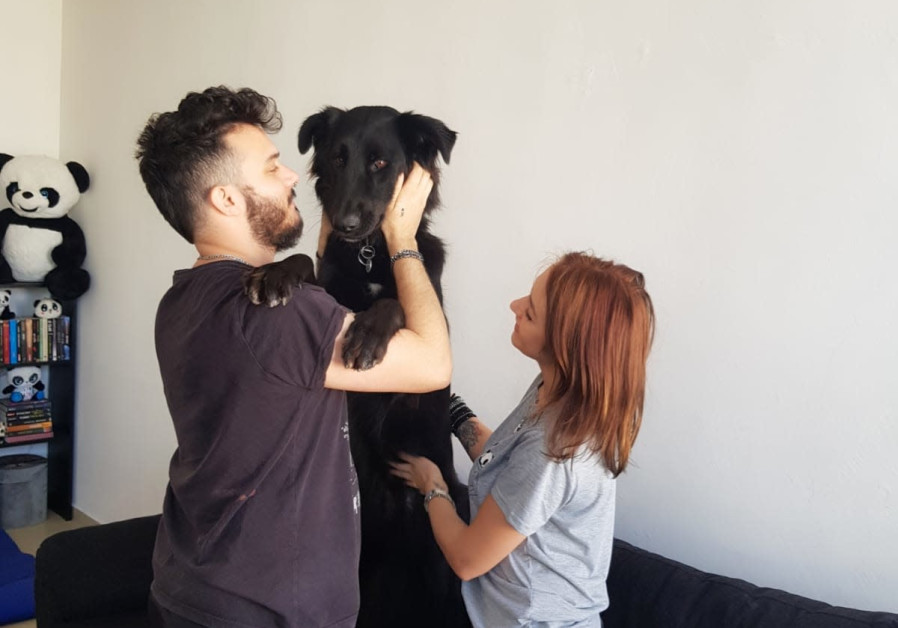Pet adoption in Israel saw a considerable rise during the coronavirus pandemic, with more people wanting to adopt cats or dogs as they were forced to spend more time at home. However, despite this, adoption of big dogs has stalled, and Israel’s shelters and rescues are filled with larger canines looking for a new home.
While adoption of smaller dogs skyrocketed, the shelters are now empty of them. According to the Society for the Prevention of Cruelty to Animals (SPCA) in Israel, the big dogs can be heard howling in their cages.
“I say this with complete confidence: You won’t find any more small dogs in shelters and rescues across the country,” SPCA Israel spokesperson Gadi Whitner said in an emailed statement to The Jerusalem Post.
According to the SPCA, much of the preference towards smaller dogs is due to a misconception that big dogs need houses and yards, and cannot function in apartments.
The result of this misunderstanding has not only resulted in big dogs being left in shelters, it has also contributed to illegal puppy mills to meet demand for smaller dogs. These mills often operate in remote villages and keep the dogs in poor conditions in confined spaces, which has resulted in starvation and other acute medical problems.
In recent months, the Agriculture Ministry has begun cracking down on these facilities, raiding many of them and rescuing dogs.
Moreover, the phenomenon of animal theft in Israel is also on the rise, a devastating situation for both pets and their owners, many of whom regard them as members of the family. Dogs are the most likely to be stolen due to the ease in stealing them if they are tied up outside a shop or left in a garden. They are sometimes used for dog-fighting, either as bait or to participate in the fights, a cruel and illegal sport that unfortunately is also a money-maker because participants bet on them.
But despite this belief, raising a big dog in a small apartment is very feasible with the right training.
SHIMI COHEN is a dog trainer and founder of the Dog Look center for dog training. He has helped numerous families adapt to having a big dog at home.
“Raising a big dog in an apartment is doable if you teach it proper behavior for the home and if you help it spend its energy on walks,” he said in a statement. “This is true of any home, big or small. Even a dog that lives in a house with a yard needs to visit new places, get a change of scenery and atmosphere, fulfill its curiosity and need for exploration, train to respond to commands, etc.”
Indeed, dogs are known to be very adaptable to new situations.
This is evident with Zion, a large rescue dog adopted by Shay Deskel and his partner Vika, who lives with them in a small apartment alongside a cat.
“Dogs are adaptable, so the ratio between the size of the dog and the size of the house doesn’t matter,” Deskel told the Post. “The dog is used to a small cage, so any home that gives him warmth and love is better than the cage he lived in.”
According to Deskel, despite being a large dog in a small apartment, not only is Zion happy, but he even gets along well with their cat.

And Zion isn’t the only success story for big dogs living in a small apartment.
PAVEL, ANOTHER dog owner, shared a similar story about Ness, a dog he adopted.
He and his girlfriend Yuval were looking to adopt a dog and went to the SPCA, but were told they only had big dogs. That was when they met Ness, a mixed Belgian Malinois.
“The second they gave him to us to walk with him, we instantly fell in love,” Pavel told the Post. “He has a great personality, he’s funny, he loves playing with other dogs.”
Despite being a large dog, Pavel said it was “pretty much the same as expected of living with a smaller dog.
“He has his own space, his own toys, he loves sitting with us while we’re watching TV or cooking, he loves playing with us a lot. He’s an attention grabber, but that’s good because we both love to give him attention and show him love.”
Just as Cohen indicated, having dogs expend their energy is very important. “He’s a high energy dog, so he needs his run to get tired and stay healthy,” Pavel said, but he’s more than happy to do so.
“Ness means miracle in Hebrew, and he is just that and more. He gives us so much joy.”
Ultimately, the size of the home or dog are meaningless, as long as an aspiring dog owner can give their four-legged friend the love and attention they need.SPCA Israel is open every day for adoption on 159 Herzl Street, Tel Aviv. For more information on adopting dogs, call *4553 or visit www.spca.co.il.Keren Preiskel contributed to this report.
